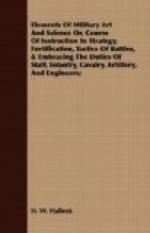Technical education is necessary in every pursuit of life. It is possible that the lawyer may succeed in some particular cases without a knowledge of law, but he will probably have few clients if he remain ignorant of the laws and precedents that govern the courts. The unlearned chemist may succeed in performing some single experiment, but his progress will be slow and uncertain if he neglect to make himself familiar with the experiments and discoveries of his predecessors.
Learning, when applied to agriculture, raises it from a mere mechanical drudgery to the dignity of a science. By analyzing the composition of the soil we cultivate, we learn its capacity for improvement, and gain the power to stimulate the earth to the most bountiful production. How different the results attending the labors of the intelligent agriculturist, guided by the lamp of learning, from those of the ignorant drudge who follows the barren formula of traditional precepts! As applied to manufactures and the mechanical arts, learning develops new powers of labor, and new facilities for subsistence and enjoyment. Personal comforts of every kind are greatly increased, and placed within the reach of the humbler classes; while at the same time the “appliances of art are made to minister to the demands of elegant taste, and a higher moral culture.” As applied to commerce, it not only greatly increases the facilities for the more general diffusion of civilization and knowledge, but is also vastly influential in harmonizing the conflicting interests of nations.
Nor is learning less humanizing and pacific in its influence when applied to the military art. “During the dark ages which followed the wreck of the Roman power, the military science by which that power had been reared, was lost with other branches of learning. When learning revived, the military art revived with it, and contributed not a little to the restoration of the empire of mind over that of brute force. Then, too, every great discovery in the art of war has a life-saving and peace-promoting influence. The effects of the invention of gunpowder are a familiar proof of this remark; and the same principle applies to the discoveries of modern times. By perfecting ourselves in military science, paradoxical as it may seem, we are therefore assisting in the diffusion of peace, and hastening on the approach of that period when swords shall be beaten into ploughshares and spears into pruning-hooks.”




